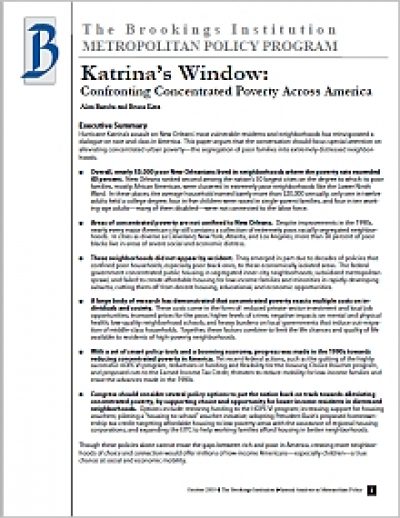Poverty Rate
At the time of Katrina, nearly 50,000 poor New Orleanians lived in neighborhoods where the poverty rate exceeded 40%.

Hurricane Katrina’s assault on New Orleans’ most vulnerable residents and neighborhoods reinvigorated a dialogue on race and class in America. This paper argues that the conversation should focus special attention on alleviating concentrated urban poverty—the segregation of poor families into extremely distressed neighborhoods—and cultivate policies that create neighborhoods of choice and connection.
News coverage of Hurricane Katrina’s aftermath in New Orleans showed that individuals and families left behind were overwhelmingly poverty-stricken blacks in poor health. Residents in this isolated neighborhood had no friends or relatives to turn to for shelter or financial assistance. Katrina showed how poverty can isolate any urban neighborhood socially as well as geographically.
We hope you'll find value in this report. We’d love to get a little information from you, which we'll use to notify you about relevant new resources.